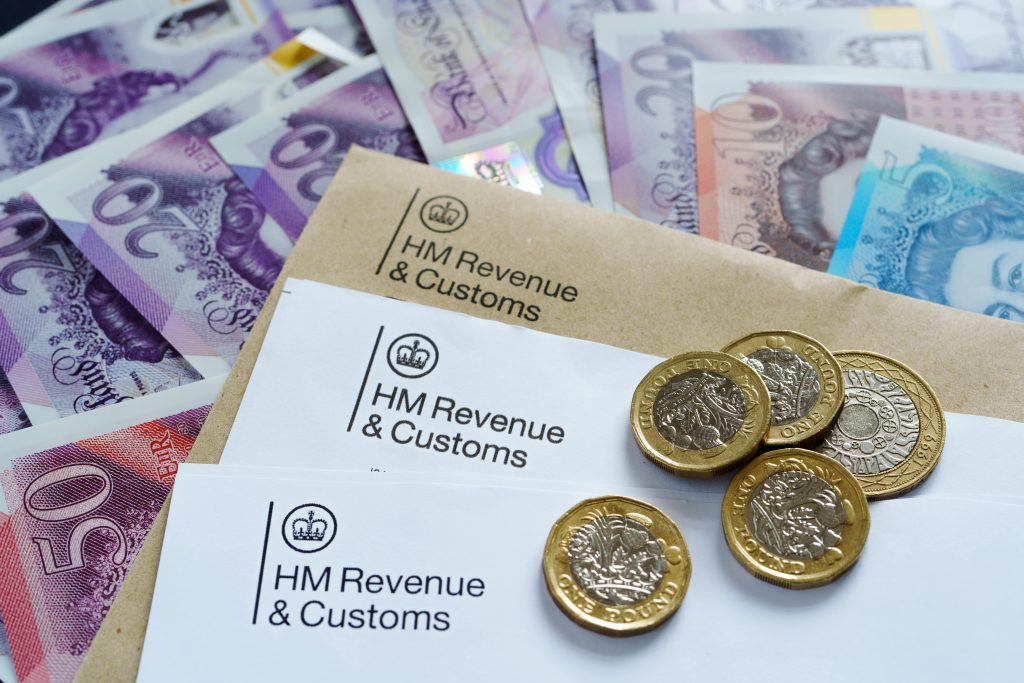Since the finalisation of Brexit, rules for trade between Great Britain and the European Union have changed. As of 1 January 2021 all businesses based in Great Britain need an EORI number to import and export goods from or to the EU.
If your trade business is just starting out, then getting your head around EORI numbers can be tricky. Even if you have been trading for years, the way you do trade will likely have changed since January. EORI numbers don’t need to be complex and once you understand them, they are easy to apply for and use. We have put together the ultimate guide to help you navigate the new regulations.
What is an EORI number?
An EORI Number allows you to trade between countries. Until January, Great Britain was part of the European Union so an EORI number was not required. That has now changed and all businesses exporting or importing between Great Britain and other countries need an EORI number.
An EORI number is your business’s unique identification number to help customs identify your business and goods. It was brought in on 1 July 2009 to replace the Traders Union Reference Number System but has only recently become mandatory in Great Britain.
This unique code will need to be quoted on a number of forms and official documents, so it is important that you understand what it is. Different types of EORI numbers are also issued depending on the country where your business is based and on your VAT classification.
Although it may seem like yet another hoop to jump through in establishing an international trade business, the introduction of the EORI number will actually make trade easier and safer. The system was put in place to properly implement security measures set out by the European Parliament. It has also been noted that most established traders have been calling for a common numbering system that is unique to users but valid throughout the EU for quite some time.
Mandatory identification codes for traders have been in place for years, but they have not always been universal, making identification difficult. The universal use of EORI numbers is set to improve trade.
What does EORI number stand for?
EORI is an acronym for Economic Operators Registration and Identification. It is a unique and universally recognised identifier for your business.
As an operator within international economics, importers and exporters need to be identifiable and need to be registered for customs and tax purposes. The EORI number consists of the country code of the issuing member state (in Great Britain that would be GB) followed by a code or number that is unique to that member state. In Great Britain the GB is followed by a 12 digit unique number.
Is an EORI number the same as a VAT number?
No. Although your EORI number will be linked to your VAT number (if you have one), they are not the same thing.
When you register for a VAT (pros and cons of being VAT registered) number you will be given the option to register for an EORI number at the same time. Once you have completed this application, HMRC will link all future imports.
If you have a VAT number but plan on trading with the EU, then you will need to apply for an EORI number through HMRC. The registration process usually takes a few days so make sure you don’t start trading until registration has been completed. If you do start to move goods without an EORI number you may find your goods detained and may have to pay fines, return fees, and storage fees.
Who needs an EORI number?
The EORI number is specifically for trade between countries. If you import or export goods then you will need an EORI number. Both individuals and businesses can register.
Specifically, you will need an EORI number if you move goods between:
– Great Britain (or the Isle of Mann) and any other country
– Great Britain and Northern Ireland
– Great Britain and the Channel Islands
– Northern Ireland and countries outside the EU
You do not need an EORI number for moving goods between Northern Ireland and the Republic of Ireland.
You will also need a EORI number if you:
– Have appointed someone else to handle customs for you
– Make customs declarations
– Use customs systems such as CHIEF or ICS NI
– Apply for a customs decision
For companies that are part of larger firms, holding groups, or businesses, the EORI number must be issued to them and not the subsidiary company. Application and registration will need to go through the parent company and details passed on to any subsidiaries working for them.
You should note that the EORI number is only for goods, not for services. If your company offers digital services across borders you will not need an EORI number. However, if your business starts to trade physical goods at any time, you will need to make sure you have registered for an EORI number in time to have your number before your goods reach their destination.
Even if your company is not usually a trade company, or if you normally don’t import and export outside of Great Britain, you will still need an EORI number if you plan to trade outside of Great Britain. This applies to special order, small shipments, and one-off arrangements. Make sure you know what you need and have registered before making your trade arrangements.
Personal parcels and shipments do not require an EORI number.
What are the types of EORI number?
There are three types of EORI number and the type you need depends on how your business trades and whether you or not you are already VAT registered. You can register for an EORI number if you are a:
– VAT registered business
– Non-VAT registered business and importing
– Non-VAT registered business and exporting
You will need different information depending on which type of EORI number you are registering for.
There are also differences between EORI numbers registered to different member countries. If you are trading out of Great Britain, you will need an EORI number that starts with GB. For trade between Northern Ireland and The Republic of Ireland, you will need an EORI number that starts with XI.
If your business will be making certain other declarations or customs decisions in an EU country then you may need an EORI number from an EU member country. You will need to contact the customs authority in the EU country you are trading from in order to get the relevant number.
Businesses established in multiple EU countries who import or export from those countries will need to apply for the relevant EORI number from the country where the business is based. Remember that this could mean multiple EORI numbers if your company is large and diverse. These EORI numbers will also not be issued through HMRC and you will need to follow the correct channels in the necessary country to apply for their EORI number.
How do I find my EORI number?
After you have applied for your EORI number you will receive an email from HMRC within a few days with your EORI number. Getting the number can take up to a week, with trade by air (rather than ship) usually taking longer to register. Bear this in mind when registering for your number.
Before you register, you can also check if your business already has an EORI number. If you are VAT registered you would have been given a VAT number. This may or may not be linked to an EORI registration.
To check if your VAT number has a linked EORI registration, use the Gov.uk service page to check your VAT number. You will need to add GB to the beginning and 000 to the end. For example, if your VAT number is 123456789 then you would type in GB123456789000.
Is an EORI number mandatory?
If you import or export goods of any size or number then an EORI number is mandatory.
There is no cost involved in applying for an EORI number, but there are significant costs you may face if you start trading without the necessary registration and documents. Make sure your company is protected by registering for an EORI number if you plan to import or export.
Do I need an EORI number if I’m not a business?
If you are sending or receiving parcels in a private capacity, then you do not need an EORI number. This includes any posted or couriered items, providing they are not for business purposes and you are not engaging in trade. Personal and private goods will need to be shipped through a third party and they will be responsible for ensuring they have the correct documentation for your goods to clear borders.
For people who are self-employed, sole traders, or in partnerships, even if you do not call yourself a business, if the goods you are importing or exporting have business purposes then you will need an EORI number. This applies to any trade or sale, even if it is one-off.
What happens if you don’t have an EORI number?
Without an EORI number you are not permitted to import or export goods.
An EORI number allows your goods to pass through customs, so without one your goods will be stuck at the border and you won’t be able to access them. This is particularly pertinent if you use sea or air freight to move your goods.
The longer your goods stay at the border, the more expenses you will incur as you will need to pay for the storage (also known as demurrage) of your goods while they are detained. You will also likely experience problems for your business because delays will hold up transactions and cash flow.
Although you are unlikely to face any kind of monetary fine, you will probably incur heavy fees for any return shipping, customs clearance, and storage. Considering that an EORI number is free, you can save yourself a lot of time and hard work by ensuring your EORI number is in place before you start shipping.
Can I get an EORI number if I am not VAT registered
You can get an EORI number even if you are not VAT registered. EORI numbers are required for all trade, whereas VAT numbers are only required once you are trading above a certain threshold. If you are importing or exporting goods at all and do not have a VAT registration you will still be required to register for and hold a valid EORI number.
Registering for an EORI number if you are not VAT registered is simple though, so you don’t need to worry about it becoming a problem. You will be able to follow the same process as you would for the standard EORI number application.
There is a slight distinction, however, if you are not VAT registered. You will need to state whether you are non-VAT registered and an importer, or non-VAT registered and an exporter. You should also wait until after your first shipment to register as you will need carrier and tracking information to complete your application form. Keep this in mind for your first shipment as it might mean some storage fees when your goods arrive and a possible slight delay before you can access your shipment.
How do I apply for an EORI number?
The good news is that applying for an EORI number is quite straightforward and HMRC has tried to make the process as easy as possible. All UK applications are handled online by HMRC and you will need to fill in an online application form based on the type of EORI number you need. The whole process should take less than 10 minutes provided you have the right information on hand.
If you are VAT registered, you will need to provide:
– Full name
– Position
– Contact details
– VAT registration number
– VAT registered name
– VAT address
If you are not VAT registered and are importing, you will need to provide:
– Business name
– Business address
– Contact details
– Business status
– Description of goods being imported such as the quantity and value
– Supplier details
– Freight or courier agent
– Method of import
If you are not VAT registered and are exporting, you will need to provide:
– Business name
– Business address
– Contact details
– Business status
– Description of goods being exported such as the quantity and value
– Supplier details
– Freight or courier agent
– Method of export
You will also need a government gateway user ID which would have been issued when you first registered as a business. If you don’t already have a one, you can create one when you start the process.
Sole traders or individuals applying will also need their national insurance number.
You may need your UTR (Unique Taxpayer Reference) or if your company is registered in the Companies House Register, you will need to provide the start date of your business as well as the SIC (Standard Industrial) code.
If you skip any information or fill in the wrong details your application will probably be rejected. Make sure you have all the relevant up-to-date information available when you apply to be sure your application process is quick and easy.
This is the process for a GB EORI number. If you also need an XI EORI number for trade with Northern Ireland, then you will need to apply for your GB EORI number before applying for your XI EORI number. HMRC provides an enquiry form that can be filled out after you have already received your GB EORI number that allows you to apply for your XI EORI number as well.
Do EORI numbers expire
EORI numbers do not expire and you will only ever need to apply once per business. The only reason for needing to apply for multiple EORI numbers is if your business expands into other countries and you are required to hold EORI numbers issued in those member countries.
Where can I find help with my EORI number?
If you are struggling with your application, have specific questions for HMRC, or need to update information, HMRC have provided various ways of contacting them.
– Use the online form for get specific advice about your EORI number
– Use the provided phone number between 8am-6pm, Monday-Friday to ask more general questions. Call HMRC on 0300 322 9434
– If you would prefer to write, you can contact HMRC at: HM Revenue and Customs – CITEX Written Enquiry Team, Local Compliance S0000, Newcastle, NE98 1ZZ
You can contact the HMRC EORI team to:
– Ask general or specific questions related to your application or EORI number
– Update company details including contact details, registered names, or your VAT number
– Let them know when you register for VAT for the first time
– Let them know you no longer use or require your EORI number
– Remove your company details from the public records EORI database























































































































































